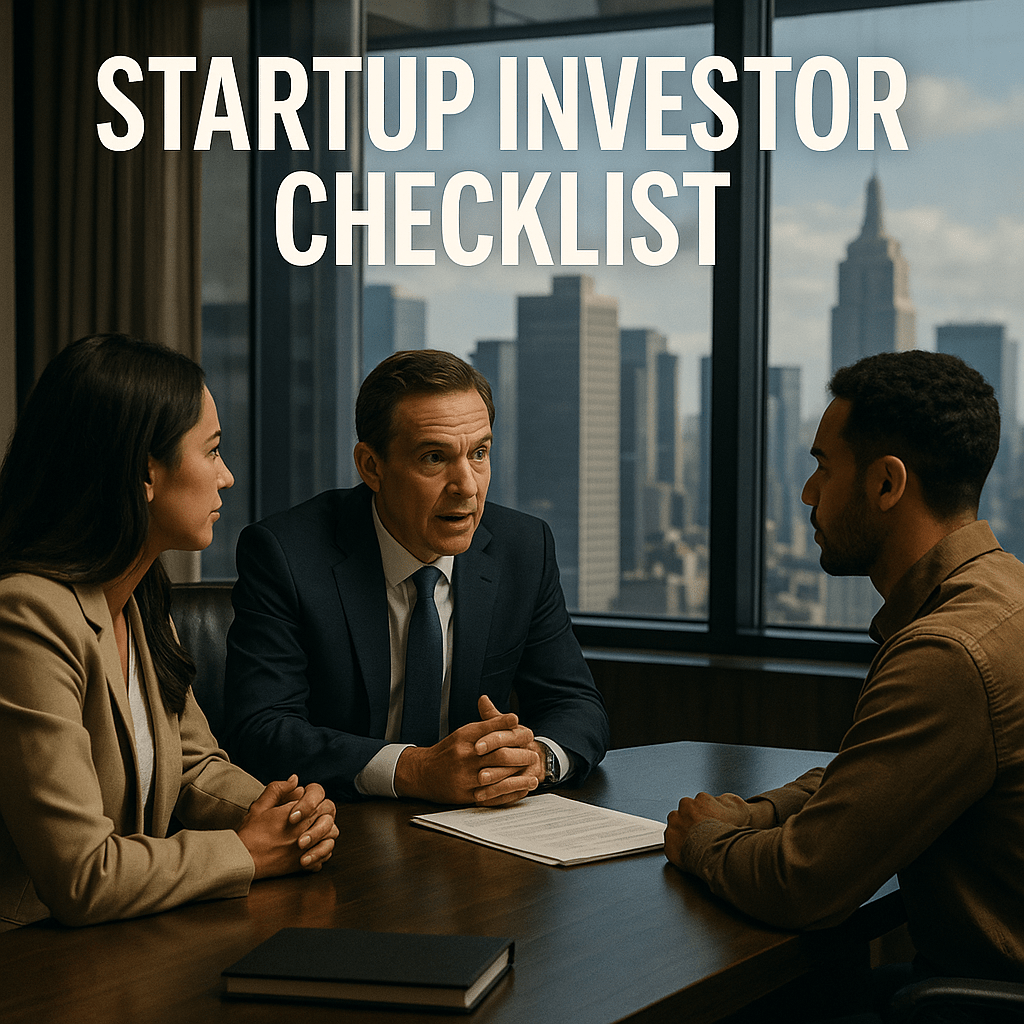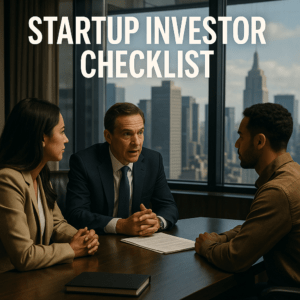Before committing capital, venture capitalists and angel investors are looking for specific signals that demonstrate both business potential and legal readiness. For startup founders in California, especially those targeting Silicon Valley or Los Angeles-based venture networks, these expectations aren’t just about the pitch deck—they involve corporate hygiene, founder dynamics, intellectual property, and strategic alignment. This startup investor checklist outlines the five things investors evaluate before writing a check.
1. Is Your Team Legally Aligned and Operationally Clear?
Investors don’t fund founders who are still negotiating equity splits or have unresolved co-founder disputes. They want to see formal founder agreements in place, including signed stock purchase agreements, IP assignment agreements, and a clear vesting schedule. Any ambiguity in team roles or ownership opens the door to future litigation, which is a red flag. Investors want to feel confident that your team can build, execute, and scale without internal legal disruption.
2. Is Your Corporate Structure Investable?
One of the most overlooked items on any startup investor checklist is whether the startup is structured to accept investment. This means:
- Is it a Delaware C-Corporation?
- Has the company properly adopted bylaws, issued stock, and documented board consents?
- Are capitalization tables clear and accurate?
Without these formalities, investors often can’t even initiate due diligence. Worse, sloppy formation documents can delay funding, trigger tax issues, or result in lost credibility. Clean corporate structure is table stakes for venture funding.
3. Is Your Intellectual Property Owned by the Company?
Many founders mistakenly assume that their idea or codebase belongs to the company by default. In reality, if IP assignment documents haven’t been signed by founders, early engineers, or designers, the startup may not actually own its most valuable assets. This creates legal exposure and potential claims by former contributors. Investors want ironclad confirmation that the startup owns its trademarks, patents, codebase, domain names, and brand assets.
 4. Is There Evidence of Execution?
4. Is There Evidence of Execution?
Execution is more than just progress updates; it’s proof of momentum. Investors look for real signals that your startup is moving fast and smart. That can include:
- User traction (even if small)
- Product iteration cycles
- Strategic partnerships
- Early revenue or pilot programs
But critically, this execution should be matched with legal compliance. For example, if you’re collecting user data, investors will check whether you’ve implemented a privacy policy or terms of use. If you’re a healthcare or fintech startup, they’ll look for early licenses or regulatory planning. Legal gaps suggest poor execution.
5. Are Your Co-Investors or Advisors Aligned?
Sophisticated venture capital investors are often influenced by social proof. If your startup has respected angel investors, technical advisors, or founders from other venture-backed startups already involved, that signals credibility. But again, this needs to be documented: SAFEs, advisory agreements, and cap table notations should all be in place and verifiable. A smart startup investor checklist always includes vetting co-investor and advisory dynamics.
Why Legal and Business Readiness Go Hand-in-Hand
Startup founders often think of legal compliance as a cost center or an afterthought. But for investors, legal readiness is a signal of operational sophistication. A startup that can execute clean contracts, formalize equity, protect IP, and manage compliance risk is far more investable than one with the same idea but none of the infrastructure.
Los Angeles Startup VC Lawyer
Investors are looking for more than a great idea. They need confidence that your startup has the legal infrastructure to scale, pivot, and eventually exit. Don’t wait for due diligence to get your house in order. Schedule your confidential consultation now by visiting L.A. Tech and Media Law Firm or using our secure contact form.
David Nima Sharifi, Esq., founder of the L.A. Tech and Media Law Firm, is a nationally recognized IP and technology attorney with decades of experience in M&A transactions, startup structuring, and high-stakes intellectual property protection, focused on digital assets and tech innovation. Quoted in the Wall Street Journal and recognized among the Top 30 New Media and E-Commerce Attorneys by the Los Angeles Business Journal, David regularly advises founders, investors, and acquirers on the legal infrastructure of innovation.
Schedule your confidential consultation now by visiting L.A. Tech and Media Law Firm or using our secure contact form.



